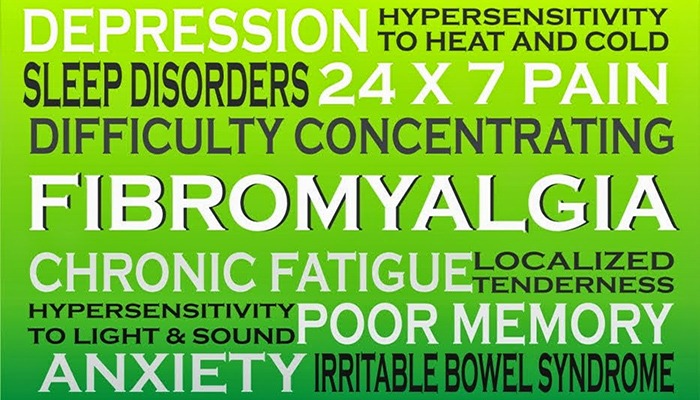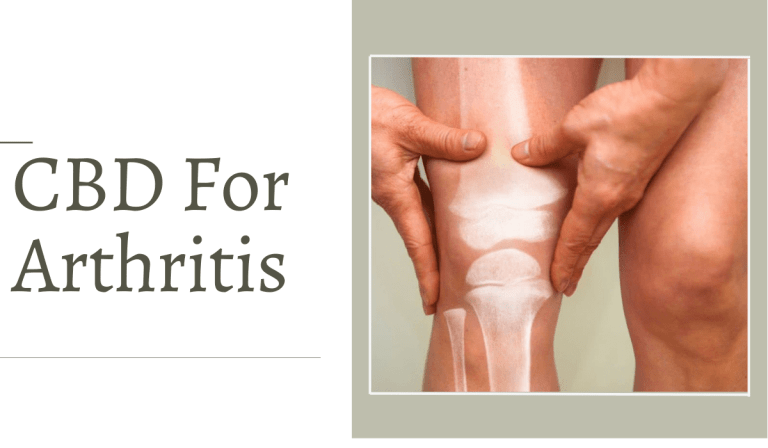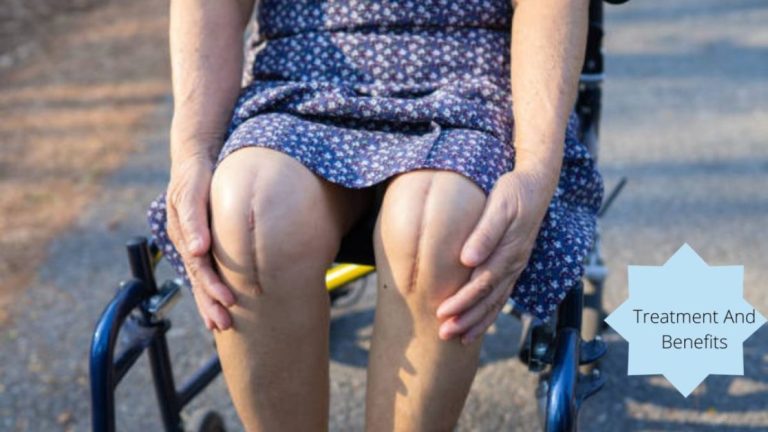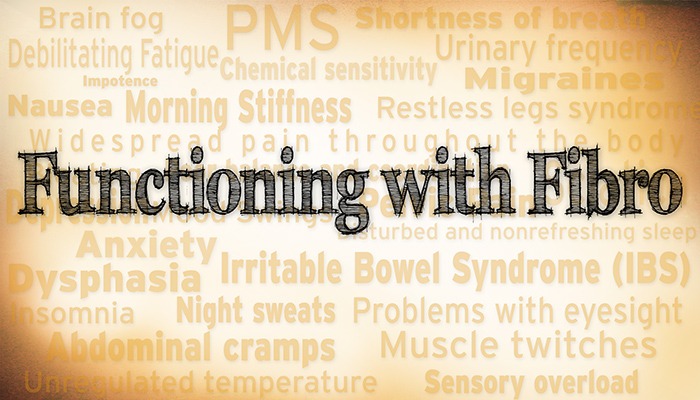Fibromyalgia Facebook Chat

Fibromyalgia and Chronic Pain
Transcript Highlights
Jan Chambers & Dana Rutledge, MD
April 24, 2014
Welcome! Thank you for joining us today for “Fibromyalgia and Chronic Pain.” This Facebook chat will be co-hosted by Jan Chambers and Dr. Dana Rutledge and will cover:
– Pain symptoms
– Causes
– Getting diagnosed
– Treatment options
– And anything else you’d like to discuss
Jan Favero Chambers is the president and founder of the National Fibromyalgia & Chronic Pain Association and is a fibromyalgia sufferer herself. Ms. Chambers was bedridden for 16 months before being diagnosed with fibromyalgia in 2006.
Dr. Dana Rutledge is a professor in nursing at California State University, Fullerton, nursing research facilitator/consultant at St. Joseph Hospital in Orange and director of research for the Fibromyalgia Research & Education Center at Cal State Fullerton. As director of the Fibromyalgia Center, Dr. Rutledge is working on an array of research projects and ongoing fibromyalgia studies.
Jan: Dr. Rutledge and I are happy to have so many of you join us this evening. The National Fibromyalgia & Chronic Pain Association and Dr. Rutledge want to thank PainPathways Magazine for the opportunity to reach out to people who have questions about fibromyalgia. Hopefully, we will shed some light on your concerns and offer answers and resources that will help you live better with this illness.
Sandy Holbrook: I’m suspicious I may have fibromyalgia. I have CRPS, I’ve had it for 12 yrs. How do I find out if I have fibromyalgia?
Jan: If you have not seen a rheumatologist to rule out fibromyalgia, please do. The diagnosis is usually made by a physical examination that reveals 11 of 18 tender points at specific body locations along with chronic widespread pain in all four quadrants of the body, upper and lower body lasting three months or longer. If you experience pain as described, then you probably have fibromyalgia. There is now the FM/a blood test that you can get (although insurance does not yet cover the $750 cost) that can diagnose FM.
Go here to learn more: www.http://thefmtest.com/ and here http://www.joomag.com/magazine/mag/0674007001362475699?feature=archive
Question: I want to get my blood tested. What vitamins should be checked to help with pain levels?
PainPathways: It is best to check with your doctor. Our pain management specialist suggests you may test for the following: vitamin D, B12, B6 an vitamin E. Each vitamin level must be tested individually.
Question: What are the best supplements to take for Fibromyalgia, Chronic Fatigue Syndrome, and a positive RA factor?
Jan: It is best to always ask your doctor about any supplements that you might want to take so that there are not interactions with medications already prescribed.
Morgan: Exercise and FM? I have pain in several places.
Dana: Exercise for persons with FM: Persons with FM should gradually increase activities… not just jump into a class! This “graded” exercise may be aerobic (e.g., walking or biking) or what is called strengthening and stretching (e.g., yoga, working with bands); both have also been shown to be of value. THINK the following: “start low, and go slow!” For many, focusing first on increasing daily “activity” is helpful before actually starting exercise. An example of this would be to park your car further from the door than usual, so that you are walking farther, or walking around your kitchen holding soup cans in both hands for 2-3 minutes at a time, or stretching your arms to the ceiling a couple of times an hour. FM-friendly exercises video: http://www.webmd.com/fibromyalgia/ss/slideshow-fibromyalgia-friendly-exercises.
Mel-Mary: Can one predict FM pain?
Dana: Great question: actually NO, but predicting that overdoing or doing something new may lead to a “flare.” So, “go slow,” and prepare for extra pain when you do a lot on one day. Working with a physical therapist, or FM-savvy trainer might be helpful.
Micah Garabedian: My daughter experiences fragmented sleep and recently the doctor prescribed Modafinil. How does this help fibromyalgia patients?
Jan: I am not familiar with this medication and I am not a doctor so I can’t answer specifically. It is important that any sleep aid should help the FM patient get into stage three sleep. If your daughter has not had a sleep lab test it would be a good idea to identify her specific sleep problem.
Lori: New info about FM?
Dana: Dr. Dan Clauw (University of Michigan) has just published a commissioned article “Fibromyalgia. A Clinical Review” in the Journal of the American Medical Association (April 16, 2014). He suggests that optimal treatment of FM involves a treatment team, usually a physician or nurse practitioner to manage medications, a psychologist or social worker to manage cognitive behavioral therapy, a physical or occupational therapist to supervise exercise, and a nurse or mid-level practitioner to maximize self-management through patient education (Clauw, 2014). Several medications may be used because each functions differently in the body, and helps with different symptoms. However, each also has different adverse effects that must be monitored. Medication management can be quite time intensive…working with a patient physician or nurse practitioner helps in maximizing the effectiveness of medications.
Question: I’ve heard of a hormone called Relaxin that was supposedly found to be very helpful with FM and other pain. I have FM and RSD, which together leave me in constant pain. Do you know of it?
Jan: I have heard of Relaxin, but it is important that you speak to your healthcare professional about this hormone to make certain that it is the right treatment for you and your specific condition.
Since some of you have asked about sleep, here’s an article from the PainPathways website that might be helpful:https://www.painpathways.org/sleep-quality-depression-pain-and-disability/
Sleep Quality, Depression, Pain and Disability – PainPathways Magazine
Kimberly: I have just been diagnosed, and needs lots of info.
Dana: Regarding why you have FM: Dan Clauw in his recent review in JAMA reports on the pain-prone phenomena, the tendency of certain persons to suffer from pain conditions. Persons with pain-proneness have multiple episodes of chronic pain throughout their lifetime; many persons with FM are pain-prone. This pain sensitivity may be partly genetic, and partly environmental (secondary to an acute stressor or chronic stress). Fibromyalgia is probably related to this pain proneness.
Micah: What different treatment options should I be looking for with a child (age 11) with Fibro?
Dana: Research has just begun on pediatric FM… at this point, physicians are doing the best they can with what is known about adult FM. I wish I could tell you more…
Question: Is there any good way to predict Fibro pain? I was diagnosed about a year ago; however, took several years to get that diagnosis. I just can’t seem to get into a lifestyle rhythm. Never know when I will be in pain.
Jan: Journaling is an excellent way to identify what activities or medications seem to stir up an FM flare. This can be done simply by using a calendar that you can slip into your purse. Each day record your activities for that day. Be certain to add new medications as you get them and note your reactions to the meds. If you have a flare refer to that calendar and see what your activities have been over the last few weeks. Eventually you will start seeing a pattern that should help you know what seems to set off your flares. You can also share your reactions to the new meds with your doctors.
Kimberly Meilhammer: I was diagnosed 2 weeks ago. What causes fibro? Are there any common factors that fibro sufferers have that may predict cause? What is best treatment & should I see specialists? Biggest issue is, exercise I’m afraid to work out now for fear I’ll hurt more…which usually happens…
Jan: Please visit the National Fibromyalgia & Chronic Pain website at fmcpaware.org for helpful information. Scientists still don’t know or understand what causes fibromyalgia. Researchers and other fibromyalgia experts know that fibromyalgia can materialize after physical or psychological trauma, after a flu-like illness (the flu is gone, but the aches and pains plus fatigue remain) or symptoms can just spontaneously begin. As more research is done scientists are learning about centralized pain – or changes that happen in the brain that turn on the pain process and then stay beyond the pain stimulus. This is called neuroplasticity, which happens in phantom limb pain; an arm or a leg is amputated but the person still experiences pain or itching in the missing limb. The brain has been turned on to pain in the missing limb even though it no longer exists. Many FM researchers think that something similar happens in FM patients; a pain stimulus such as a whiplash might be experienced and the resulting treatment of the whiplash might not be strong enough to stop the pain experience. This can result in changes in the brain – or centralized pain – that might be part of what happens in FM.
There are now three different kinds of pain recognized by the medical and scientific community: Nociception – Acute pain like a cut made by a knife; non-nociception – the resulting pain experienced during the healing process of the knife cut; centralized pain – which is described above. In the very recent past, fibromyalgia is beginning to be recognized as a type of centralized pain. This may result in doctors diagnosing centralized pain instead of fibromyalgia – basically the same illness. Read more here.
Chris: Why do more women seem to have FM than men?
Dana: We really don’t know why…. there are hypotheses, but none have been proven. The newer way to diagnose FM (since 2010) does not involve the physician pressing on the “tender points” and involves evaluating many symptoms, which will be leading to more men being diagnosed. PainPathways has a related article on this topic too.
Kate: How do you stay working when you are in pain?
Dana: This is a very important question. Research supports work as an important quality of life issue. When persons with FM are able to work with their employers to work around painful times and alter their work (not always possible in all jobs), they usually do better than folks who stay at work and who are not able to alter their work. In other words, it depends!!
Pez Dispenser: There are no support groups in my area. I’ve found some online resources, but can you give suggestions on starting a group up?
Jan: Please visit the website at fmpcware.org for support group start up information. Also, if you have not done so, please refer to the support groups listing to make certain we don’t have something in your area.
Chris ‘n Tracy: Any advice for my upcoming disability hearing? This invisible disease has ruined my life and I’m unable to get out of bed most days let alone work. How do I stress this to a judge who knows nothing about my struggles?
Jan: Please go to Recognizing Fibromyalgia as a Disability in the Summer 2013 Fibromyalgia and Chronic Pain LIFE magazine. Our digital magazines are free.
This year the ICD10 codes should go into effect in October. These codes are used by your doctors and other healthcare professionals to use on medical insurance forms for billing. When these codes become live, fibromyalgia will have its own diagnosis code and this should eventually help people get disability. Also you might want to try Allsup, which is a company that works to help people get disability. There are no charges for the patient; Allsup will take a portion of the first disability payment. This payment is set by federal law and is the same as an attorney would get. Please go here for more information.
Jacqueline: My current problem with FM is inability to sleep well, a common problem in FM.
Dana: Using good “sleep hygiene” is the first step, but you probably knows this. Sleep hygiene includes going to bed and getting up at the same time every day; making sure that the sleeping environment is conducive to sleep (i.e. quiet, free from distractions, a comfortable room temperature, a supportive bed), avoiding caffeine, sugar and alcohol before bed; doing some type of light exercise during the day, avoiding eating immediately before bedtime and practicing relaxation exercises as you fall to sleep. When necessary, there are new sleep medications that can be prescribed, some of which can be especially helpful if the person’s sleep is disturbed by restless legs or periodic limb movement disorder. Scientific studies show that many people with fibromyalgia also have neurally mediated sleep apnea. It is a good idea to get a sleep lab study done to discover exactly what kind of sleep problem the person is dealing with. If the person does have sleep apnea, a continuous positive airway pressure (CPAP) machine or a special oral appliance created to move the jaw forward during sleep have been shown to be effective. The fact that an insurance company won’t pay for the CPAP is another issue entirely…. can you appeal?
Sue: What is the effectiveness of water therapy, and what type of water therapy…
Dana: Studies across the world show that WARM water – in any form – seems helpful to most people with FM. Doing exercise in a warm pool is among the best types of exercise for persons with FM.
Julie: Trajectory of symptoms with FM?
Dana: Research is beginning to come out about this. It seems that most people (on average) do not get worse over time. HOWEVER, there is a minority of people with FM who get worse and there is a minority of people who get better. We cannot tell at this point who is going to be in which group.
Saranyupa: I have chronic fatigue syndrome and also may have FM.
Dana: This is SO common… the two overlap considerably. The treatment she is prescribed (milnacipran) should help with both… it should help with both your fatigue and your sleep problems.
Lori: Is there a certain diet or way of eating that we can follow to alleviate chronic pain?
Dana: Sadly, there is not much definitive about diet for alleviating chronic pain. Raw food diets are recommended, but we don’t have much more direction than that presently.
A couple more thoughts I had…We do know that being heavy contributes to a body being in an inflammatory mode since fat cells are inflammatory chemical producers. So, keeping your weight down is a good thing. The old adage – moderation in all things. Well balanced diet with lots of protein, fruits and veggies and minimal sugar!!
Lori: My daughter also has FM. Is it inherited?
Dana: Studies show that there is a genetic link and more research is being done in this area.
Chris: Why do persons with FM have so many sensitivities? Others have also mentioned this in their questions.
Dana: Hypersensitivity to sensations (and to chemicals) may occur with FM. Sensations that are uncomfortable and sometimes distressing include touch, hot or cold, loud sounds, bright lights, odors. To avoid the discomfort, avoidance of these triggers is suggested when possible. Changing the environment can improve your quality of life when these triggers are eliminated or minimized. You need to tell those you are with what triggers affect you, and how they can help you as you modify your environment.
Jessica: I think I can speak for many with fibro and chronic pain that we are simply crying out for help and recommending we talk with our doctor isn’t a satisfying answer. Obviously, our doctors are not treating us effectively or we wouldn’t be refreshing every 5 seconds looking for answers, literally. I do not mean any disrespect and I understand that Facebook is not the place to dole out medical advice without understanding a patient’s history, but I feel very desperate at this point. I have been to the best of the best and have left their offices untreated or treated ineffectively. I’ve gone through the entire Pain Management Program at the Cleveland Clinic founded by Dr. Covington and I am still in so much pain. I don’t know where else to go or where else to look for help?
Jan: Sadly, there just isn’t a silver bullet to cover everyone with FM. Every person who has FM comes with a different slate of symptoms and this makes it extremely difficult to treat. You might want to concentrate on what other overlapping symptoms (conditions) you might have and make certain that your doctor(s) are addressing those conditions and not blaming FM for everything that is wrong with you. Push to find out what kind of sleep problem you have – get a sleep lab if possible. If you have sleep apnea – and a lot of FM patients do – then do everything prescribed to get better sleep. Journal and refer to your notes often to see what kinds of activities cause you to have flares. Self-management is the best course of action because only you know what is happening and how medications affect you or how exercise hinders you. Then take steps to learn how to cope or change your behavior to make a difference. A multifaceted approach to treatment is best: A doctor to coordinate the whole treatment including your meds; alternative therapies that seem to fit for you, i.e. cognitive behavior therapy, massage, exercise, acupuncture, warm water pool exercises, etc. and a counseling support program that can help you live better with a chronic pain condition.
Georgie: Is it better to have a combination of medications – Amitriptyline, Lyrica, Tramadol & muscle relaxants etc – to manage fibromyalgia, or a single medication?
Dana: Patients seem to do better when medications target the most distressing symptom… so since you may have more than 1 (yes, don’t all people with FM!), more than 1 medication may be needed to help control your symptoms.
Margaret: What can I do about muscle cramps?
Jan: Make certain you are taking enough magnesium. You can have this level checked through a blood test. Many people with FM have this problem. If you are talking more about trigger point issues, a tightening of the muscle, then find someone – a massage therapist or a physical therapist that can help with myofascial release.
In case you have not seen this study on fibromyalgia symptoms, this may be helpful:
Survey Reveals #1 Fibromyalgia Symptom – PainPathways Magazine
Melissa: Does Leaders Against Pain still exist?
Jan: Yes! It is alive and well. Go to www.fmcpaware.org
National Fibromyalgia & Chronic Pain Association (NFMCPA)
Michele: I know that they say narcotic and opioid paid medications are not the answer to FM or really any other chronic pain syndrome. My question is…how do you get through a day without any form of pain control? When my pain is a 7/8 and I take my medications and it goes down to a 5/6…the ability to function like this is not long.
Jan: Interestingly, there has never really been a study done on FM and opioid medications. Somehow this rumor became fact. A couple of researchers are discussing doing a study on this issue. Please visit the NFMCPA website for more information on this subject: fmcpaware.org
PainPathways: Hi everyone! This is Amy North, editor of PainPathways Magazine. On behalf of Dr. Richard Rauck, we’d like to thank both Jan Chambers and Dr. Dana Rutledge and all those who participated in tonight’s chat! We are excited to be offering this great forum for information and inspiration. Have a good night everyone!
Professional and Individual subscriptions to
PainPathways Magazine
available at velaharbor.com
All information provided is for educational purposes only. Neither PainPathways nor their Facebook Chat hosts are responsible for a medical diagnosis. Individuals should seek a physician for evaluation and personalized treatment plan.
PainPathways Magazine
PainPathways is the first, only and ultimate pain magazine. First published in spring 2008, PainPathways is the culmination of the vision of Richard L. Rauck, MD, to provide a shared resource for people living with and caring for others in pain. This quarterly resource not only provides in-depth information on current treatments, therapies and research studies but also connects people who live with pain, both personally and professionally.
View All By PainPathways






